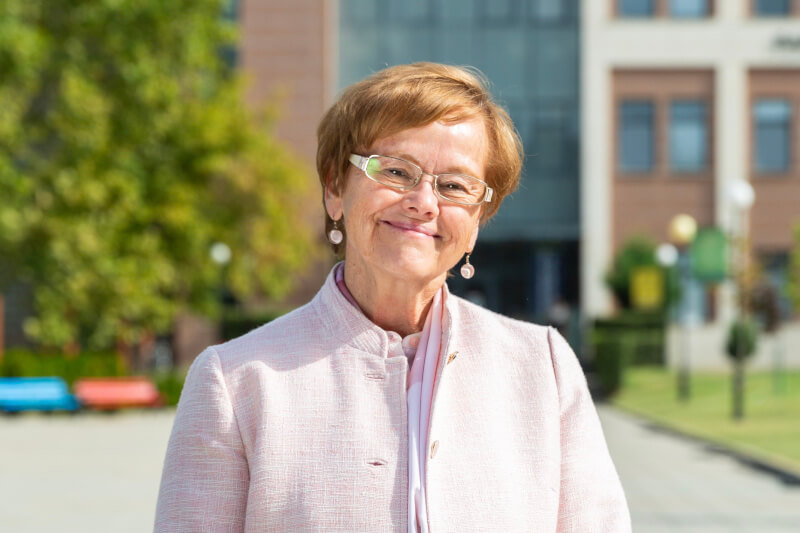
Feeding 300,000 refugees and snatching young women from the clutches of terrorists weren’t part of Dr. Margee Ensign’s job description as university president. But when she was faced with student escapees in danger of recapture and starving families at the gates of the American University of Nigeria, which she headed between 2010 and 2017 and in 2021–2022, she rose to the occasion.
Not only did Dr. Ensign personally oversee a daring rescue mission of 15 schoolgirls who had escaped from their Boko Haram captors, but she also led the Adamawa Peace Initiative in Northeast Nigeria. This community-led organization successfully countered the Nigeria-based terrorist group through youth empowerment and education in addition to providing humanitarian assistance for 300,000 internally displaced Nigerians.
Dr. Ensign’s fearless engagement with the world is part of a philosophy that has guided both her life and career choices to date. Her exposure from an early age to global wealth disparities motivated her to pursue a career in education. Not only is education “the foundation of everything,” according to her, but it also has the power—as well as the responsibility—to solve real-world problems such as tackling inequality and alleviating humanitarian crises.
Over the past decade and a half, Dr. Ensign has built impactful community engagement programs at institutions of higher learning in both the United States and sub-Saharan Africa. Whether students at the universities she leads are teaching disadvantaged kids to read and write, advocating for women’s empowerment, or reconciling different religious groups through athletics, they put into practice a core belief of Dr. Ensign’s—that education should work in the service of society and democracy.
Dr. Ensign’s scholarship has similarly focused on questions of development, democracy building, and civic engagement.
She assumed the presidency of the American University in Bulgaria in September 2023, hoping to return the institution to its original mandate of preparing students from the region for engaged democratic citizenship. Some of her plans include strengthening the role of AUBG’s Center for Information, Democracy, and Citizenship and making community involvement part of the university curriculum.
We talked to Dr. Ensign about engaged learning, her Africa experience, and her vision for a more involved citizenry in the service of democracies worldwide.
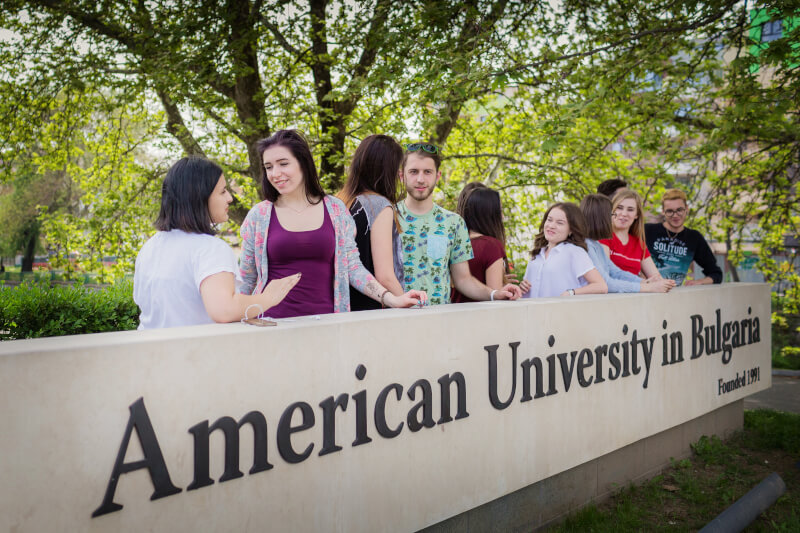
America for Bulgaria Foundation: Dr. Ensign, how did your interest in working in higher education come about?
Margee Ensign: Both of my parents were airline pioneers. My mom was what we called a stewardess, a flight attendant, who had to be a registered nurse. She had this incredibly curious and compassionate spirit. My dad’s family was deeply affected by the Depression. He was in medical school, dropped out, started loading bags on an airline, and went on to be Pan Am’s COO—sort of the American story. My education was to travel with them [around the world]. That’s where my curiosity and my love of difference comes from.
I saw a lot: I saw people with a lot, I saw people with nothing. You start asking the question why. Why can’t everybody have the things we need, the basic needs—food and education? I am sure that this wasn’t very conscious when I was 10–11–12, but just the experience of seeing difference and being taught to love and appreciate difference, that we are all better when we bring people together who are different and we hear different ideas—I feel so blessed with that upbringing and that education and the opportunities I had.
What was drilled into me is: you give back. So, the question I am always asking myself, sometimes compulsively, is: Are you having enough impact?
Education is the foundation of everything. It doesn’t solve all problems, but if you are teaching people how to think for themselves, how to think critically, how to explore solutions, how to want to learn for the rest of their lives, how to communicate—all the skills you need not only to be successful in the world but to also have an impact and give back.
We live at such a critical moment in time, in history. When you look at the big challenges we are facing… some have been with us forever—poverty, inequity, racism, ignorance, tyranny. But we have these new ones: environmental crises, climate change, the role of AI, cybersecurity, global migration, which we are not even talking about. Eight hundred million people leaving parts of the world that will become uninhabitable. We are facing challenges that we have never faced before as humanity, and we need people not just educated about the issues but working tirelessly to find solutions. I think education is the foundation of us having a hopeful future.
ABF: The American University in Bulgaria was founded 33 years ago to advance democratic citizenship and prepare leaders capable of responding to changing needs. Is this what drew you to AUBG?
М.Е.: I was very skeptical about coming here, to this region, because my experience is either in the US, as a president or a dean or teaching as one of the first women teaching at Columbia’s School of International and Public Affairs, or in sub-Saharan Africa. I’ve also done quite a bit of work in Latin America. This is an area I’ve been fascinated with, but I have no experience in. I was very skeptical about what I could accomplish here and what I could bring to the table.
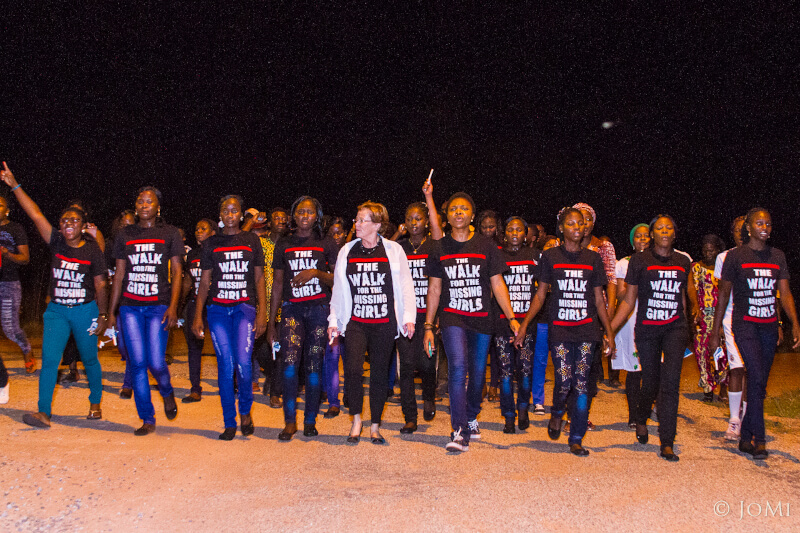
But then I was convinced to come for the interview, and I flew out for about 36 hours. I was first in Sofia and then I had an afternoon on the campus, still my mind full of “Mmm, this is not it.” And I walked by the mission statement next to the library, and it said, “The mission of AUBG is to educate students of great potential”—and we know our alums reflect that—“in an environment of respect and diversity”—and then I saw these words that said—“and to educate democratic and ethical leaders to make a difference in this region, in this country, and in the world.” I literally stopped because I am mission driven, and I thought, “If they believe this, if they do this, this is a great place to be right now.” It sounds simplistic, but based on where I’ve lived, if we can become the beacon, the model, the light for this region, this continent, this is worth it. And, Margee, you can just stretch yourself a little more.
ABF: Where is the university now, and where would you like to see it go?
М.Е.: The university has had a much bigger impact than people realize, through its alums especially. The measure of a university is what its alums are doing. I’ve just come back from London, where I met twenty of the most accomplished alums I’ve met as a university president. They are almost all primarily in finance, a few in education, but clearly we’ve taught people how to be very creative in using resources for growth and development.
The core of a university is its education, its faculty, and we have always had first-rate faculty, people from around the world who are really extraordinary, making an impact, making those connections, teaching young people how to think differently, how to look at things from many perspectives, which is the hallmark of a liberal arts education—to be liberating.
This year, we just brought in our largest class. That’s going to continue. It’s not just about growth and numbers, which some worry about; it’s about impact. If these alums are great, we want to have a bigger impact. We need more students: we need more students from the Balkans, and we need more students from the United States and from other parts of Europe.
AUBG is a young university. Thirty years is very young, and the impact that it has already had is really quite extraordinary. I’ve run America’s oldest [Dickinson College, ed.], the first university after we became a country, and I’ve run Africa’s newest [American University of Nigeria, ed.], so I have a lot of different perspectives on where universities can be. Some of AUBG’s success is unheralded. People don’t know what its alums are doing. It’s not on the radar it should be, and it’s part of my job is to make sure people understand. Now just what we’ve accomplished, but where we are headed.
ABF: One of the initiatives you are focusing on to enhance AUBG’s role is the Center for Information, Democracy, and Citizenship. What does the Center do, and how do you envision it playing a role in this region and beyond?
M.E.: The Center right now is focused primarily on projects, which is really important. Students and faculty are involved in some of these projects. The most recent one is working on disinformation, one of the most critical things a university can be doing. A university’s primary function is to uncover the truth. It is so much harder to do that right now, with how we are using technology to generate disinformation. I think it’s one of the biggest challenges that we face.
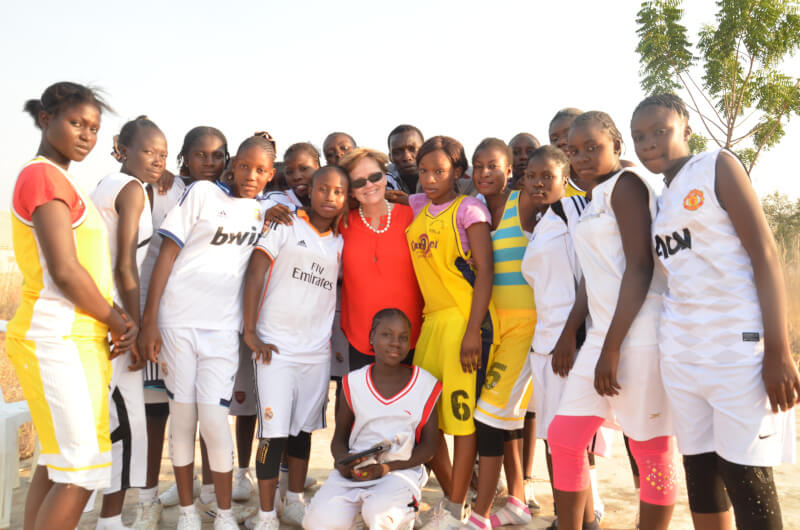
I see a very expanded role for the Center. At a university, anything that’s going to succeed and have an impact must be connected to its primary role, which is education. The Center will be moving more towards coordinating and working with faculty to make sure every student has an education in democracy and in ethics. That’s where are headed.
We are in an evaluation period to figure out how we ensure that every student who graduates knows what it means, and not just conceptually, to live in a democracy. We assume that if we are born in a democracy, somehow you know what that means, and you know how to be a citizen. We’ve done a lousy job in the US and around the world in making sure that people not just understand their rights but their responsibilities as citizens. That’s where we are headed—making sure that every student immediately applies what they know in civic engagement.
Civic engagement is democracy in action. If it’s done well, it’s teaching people the knowledge and the skills to be effective citizens, which means dealing with ideas you don’t like, learning to deal with diversity, finding consensus, dealing with conflict, understanding what the issues are in your community and your country.
So, the Center, which is doing some of that, will be deeply embedded in the academic life of the university. I want every student who graduates to have experience working in the community and maybe not just in our communities. Blagoevgrad is where you learn to do these things, but then you go home and learn to do it. It’s by giving back how you learn the most.
ABF: You are a proponent of going back to liberal arts universities’ original role as catalysts for social change versus the current trend of commodifying education. Why are universities uniquely placed to drive social change?
M.E.: There are many who think the role of an education is to prepare you for a job. But if you look at what employers want in terms of employees now, they want people who have had a liberal arts education, who can think for themselves, who can look at multiple perspectives, who can communicate, who have all the soft skills and the hard skills.
Everybody is asking the question, “What’s the role of education?” “Oh, it’s to be specialized.” But that’s the last thing we need right now!
America became a powerful country in great part because of its universities. The land-grant universities that were set up in the early 1800s were called “democracy’s colleges,” and the purpose of those universities was to generate the knowledge needed primarily for agriculture. We were an agricultural power first. Extension agents took the knowledge and skills and discoveries and the inventions from the university into communities. That’s the model I believe in.
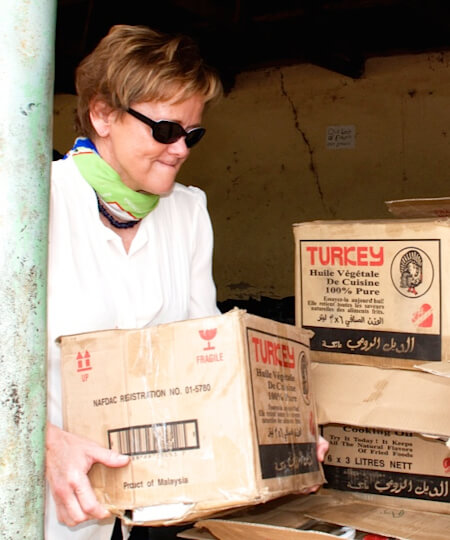
Universities have created vaccines, new inventions, better ways to grow food. What we haven’t been as deliberate about is making sure that our graduates a) understand how that’s done and, b) when they graduate, know how to continue solving those problems, creating new solutions in their communities.
If people were more connected to real problems and issues in their community, they would have to start thinking more about how you solve those problems, at the local level, at the national level. How do you bring together people of multiple perspectives and backgrounds and life experiences to solve problems? The purpose of education is to get people to confront difficult ideas, to look at an issue from many perspectives. That’s fundamentally what education is about.
Universities play an absolutely key role in this very fraught world we live in, but a world also full of tremendous hope, and that’s what I’ve seen in some of the most difficult circumstances. It’s a challenging moment, and we as educators need to be much more deliberate in making sure young people are ready for a world we’ve never lived in before.
ABF: We face sometimes-overwhelming challenges. How do we keep hoping through that? Are there lessons from your experience that you can share?
M.E.: I was president of a university in what I think is the poorest part of the world, Northeast Nigeria, a highly sophisticated, technologically based university started by an extraordinary man of great vision, insight, and generosity. A man who grew up with nothing. A couple of Peace Corps guys put him through school. [He is] self-made, a real democrat. The mission of that university was to be a development university. That’s why I went; that’s me.
We started a few projects in the community, and then we heard something terrible was going on just a couple hundred miles just north of us. We were inundated, first 5,000, 10,000, 50,000, 300,000 refugees. You can either say there is nothing we can do, or you can try to figure out how you pull the community together to solve it. The international development community was not at all interested in helping, at first.
As a university, we created a peace initiative—all the people who could work to solve it, all the Christian leaders in the community, and all the Muslim leaders. First of all, we figured out how to work together. We all found common ground in what their religious traditions say about peace. There’s always common ground, and we don’t talk about that enough. We talk about difference.
The university community met in very large groups to begin with, and I asked everyone: “Do you want to evacuate, or do you want to stay?” Everybody had a choice. Not one person, not one faculty member, said, “We are leaving.” I reached out to all the parents. “No, we think [the students] are safe with you.” One of the scariest comments I’ve had in my life, because we had not only undergraduate and graduate students, but also a boarding school, with young kids, a huge operation.
Here’s what I learned about a university at that point. Young people have great ideas, and they want to be involved in solving problems.
There were no schools for all the internally displaced people… [so] all of the students in the media major designed the most creative radio shows in the local languages to teach kids how to read, under trees. The reading results were through the roof. The computer science students said, “We want to do this, too.” Every school department had a project to solve the problems that were literally outside our gate. We hired all the local poor women, they didn’t have any income, so they cooked the food for something called Feed and Read. My students every day after classes were outside the gate teaching kids how to read, teaching them math.
This is how you teach someone to find their passion, to learn how to solve problems, to learn how to be democratic—because everything had to be done cooperatively not just with other students, not just with faculty, but with the whole community, with our peace initiative. It deepened my belief that we have the ability to make sure students are prepared for the world they will enter with all the knowledge and the skills to be inspiring, profound leaders.
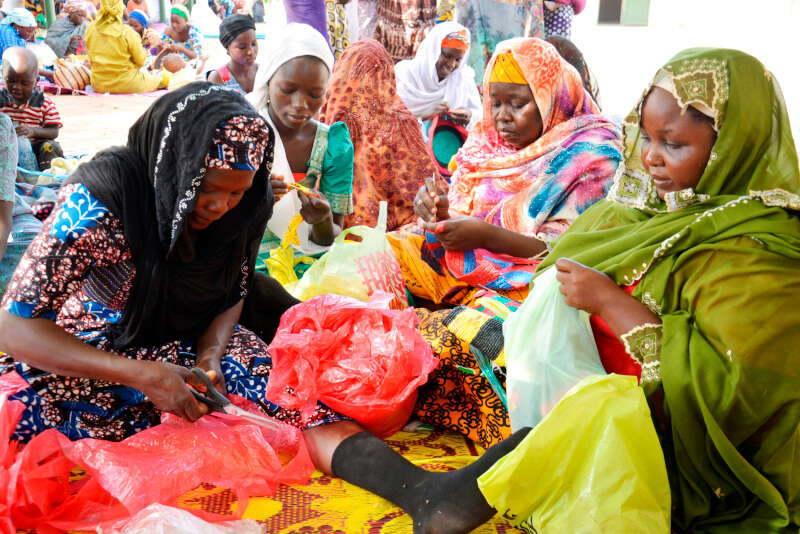
Those were the biggest issues you can imagine confronting. The violence was just across the bridge, but that community stayed safe because we came together as a community and fed and took care of folks and educated them.
Is that transferable? Absolutely. Not every community is facing a humanitarian crisis, but every community has issues that need to be solved, whether you are in Bulgaria, in the United States, or in sub-Saharan Africa. Universities have to be the center of that—creating young people with the civic attitudes and skills to solve problems. And that’s where hope comes from.
ABF: Speaking of hope, it seems that the more experience people have with democracy, the more pessimistic they are about it. People from civil strife–ravaged places like Nigeria are more optimistic and hopeful about the promises of democracy. Why do you think that is?
M.E.: I don’t think we can afford to be pessimistic. I think it is our responsibility to be hopeful. In other centuries, people have faced these issues, but what we have never faced is the global crises we are facing.
We have to ask ourselves: Are we going to solve these problems as democracies or as dictatorships? We can only solve problems as democracies because we need new ideas. New ideas can’t emerge from a dictatorship because ideas are squashed; controversial ideas are forbidden. That’s one of the reasons democracy is so important, besides the fact that it is a basic human right to have freedom, freedom of speech, to have justice, to be treated equally.
Can you think of a dictatorship that isn’t corrupt? Lord Acton was right, “Power corrupts, and absolute power corrupts absolutely.” It’s what we’ve got, and we have to figure out how to make democracy better.
Where democracy challenges people is that it’s messy. Democracy is hard. You have to deal with people you don’t like or you don’t agree with. But that seems pretty minor compared to the big issues that we are facing.
As educators, we assume people know how to be engaged citizens. How would you know that if you haven’t had the experience? For me, that’s hopeful. There is a solution—to make sure young people are prepared.
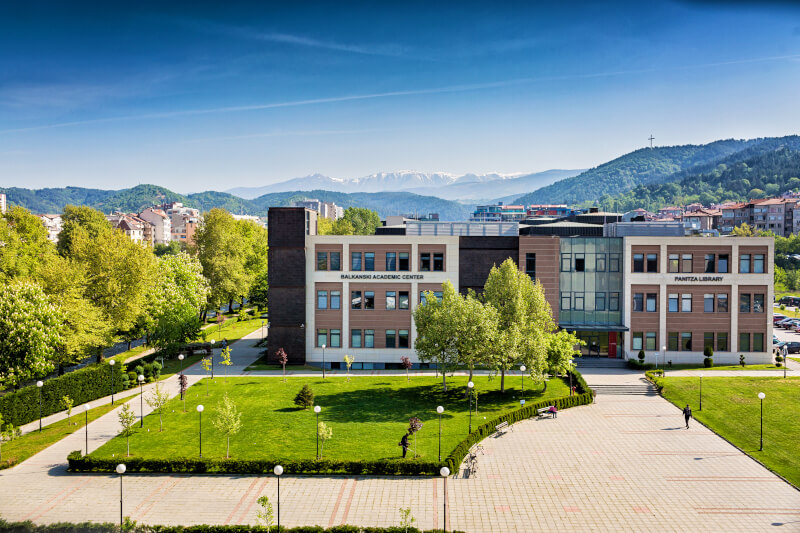
ABF: When we talk about solving problems, how do we fight the “It doesn’t concern me” mentality?
M.E.: I was teaching a development class [in Nigeria], and we had started Feed and Read [a program the American University of Nigeria started to provide food and basic literacy classes to refugee children, ed.]. There was a student from a really rich family in my development class. I was telling the class how we were going to walk to the Feed and Read, and he said, “What are you talking about? I am not walking there.” I say, “It’s a ten-minute walk.” He said, “Where’s our bus?” I said, “You can walk with us.”
We walk down, and I see him engaging with some of these little girls. He comes in the next class, stands up, and says, “I want to tell everybody something. My dad owns the biggest oil company in this country, and I was going to work for him. My mission now is different. How is it possible that a five-year-old girl in this country has never seen a book?” I said, “How is that possible? It’s your country. What does that mean to you?” He said, “This is where my life will be.”
When you have exposure and you instantly see that the gap between what you have and the rest of the world is so great… that’s education. It’s not going to happen with everyone, but it will happen with enough that we can educate a generation to be engaged, democratic citizens who are solving problems.

